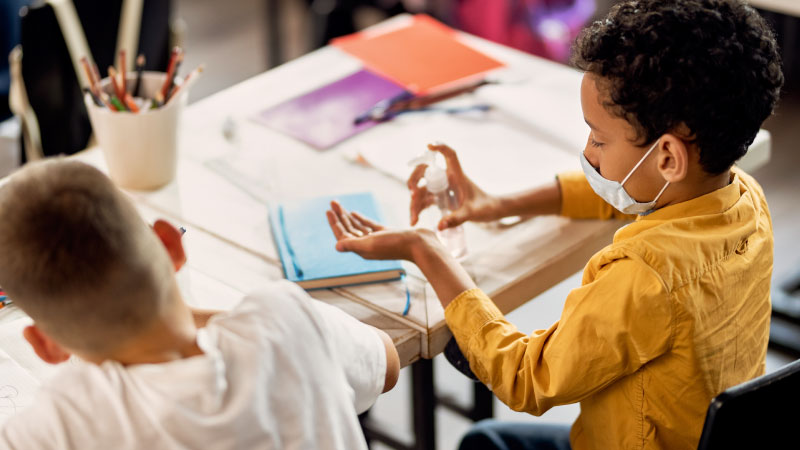Lessons on personal hygiene for preschoolers are significant for developing good habits and lifestyle management skills in early childhood. Health experts believe that by maintaining personal hygiene, little ones can prevent several contagious ailments and diseases. Moreover, it empowers children to independently perform various day-to-day activities. Personal upkeep shapes a positive personality, making children presentable, confident and happy about themselves.
The Basics Of Personal Hygiene For Preschoolers Include The Following…
-
Brushing teeth twice per day
Good oral hygiene prevents cavities, tooth decay and bad odour. Toddlers must learn to use the toothbrush and floss properly. They should be taught to clean the corners of their lips and wash their mouths thoroughly after eating. A yearly visit to the dentist is also recommended.
-
Taking a shower regularly
Preschoolers should know it’s important to wash their entire body, especially difficult parts (e.g., ears, neck, armpits, elbows, bellybutton, knees, feet and the skin in between fingers and toes) thoroughly. It lowers the risks of skin diseases. Daily baths should include the use of soap for cleaning, water for washing the suds, and patting the skin dry to avoid rashes. It’s equally important to wash the hair at least twice a week to avoid oily roots, dandruff, lice infestations and skin infections.
-
Following toilet etiquette
Learning to use the toilet correctly is an important aspect of personal hygiene that we often tend to miss out on. Preschoolers should learn to flush the toilet after use and wipe the seat if they happen to soil it. They should be trained to clean their hands, bottoms & pubic regions thoroughly before leaving the loo.
-
Grooming hair and nails frequently
Dirty hair and nails are a breeding ground for most germs and parasites. Therefore, it’s important to cut the nails at least once every eight to ten days. Likewise, children should comb their hair once a day and girls should tie hairs to avoid sweaty necks or ears, especially during the summer.
-
Wearing neat and clean clothes
Our clothes and accessories absorb most of our skin oils and sweat. Wearing sweaty or dirty outfits causes skin infections, while unironed clothes make us look shabby. Therefore, children should be taught to keep their clothes, shoes and accessories clean.
-
Washing the hands frequently
Washing hands was always insisted on by our elders. However, following the COVID-19 pandemic, hand hygiene has become a necessity for everyone. It prevents germs from entering our bodies and causing deadly diseases. Preschoolers should thoroughly wash the front and back of their palms, inside the nails, and in between their fingers with soap and water. We must teach them to wash their hands before and after meals, after using the restroom, and after returning from the playground.
-
Keeping the surrounding clean
Personal hygiene also includes living in a clean environment. Therefore, children should learn to keep their things in place, clean their study desk & bed before use and sanitise their rooms and belongings to prevent surface contamination.
Modelling Personal Hygiene For Preschoolers
The best way for early learners to pick up on personal hygiene is through regular discussions, logical explanations, consistent reminders and modelling how to stay spick and span. Teachers and parents can make lessons on personal hygiene more interesting with engaging stories, colourful charts, fun activities, live demonstrations, etc.
Chrysalis Kids’ Early Years Programme is thoughtfully designed to arouse curiosity, raise awareness about personal hygiene and cleanliness, foster good habits, and develop critical life skills in preschoolers. Click to know why Chrysalis Kids is the top nursery school in Bangalore and how we do things differently!
